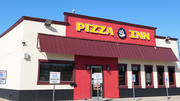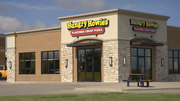Article
The great tip debate: Who gets what
The Starbucks tip-pooling case will likely affect other businesses.

July 9, 2013
By Michael Busch, founder of Valiant Restaurant Division
When someone provides a service, you may choose to leave them a tip as compensation or reward. Generally speaking, the better the service the larger the tip.
That's not always the case, however. Take theheadline-grabbing Starbucks tip-sharing case.
A bit of background is in order: In 2008, Starbucks was sued in Manhattan federal court by two former baristas for including shift supervisors in their tip pools. Later, a group of assistant managers sued in the same court, claiming they were illegally excluded from said tip pools.
On June 26, the state's highest court resolved the matter, allowing Starbucks baristas to include shift supervisors in tip pools while excluding assistant managers.
 |
| Michael Busch |
Judge Victoria A. Graffeo wrote: "An employee whose personal service to patrons is a principal or regular part of his or her duties may participate in an employer-mandated tip allocation arrangement" under state law, "even if that employee possesses limited supervisory responsibilities. But an employee granted meaningful authority or control over subordinates can no longer be considered similar to waiters and busboys."
In essence, the court is saying that the role of shift supervisor is not managerial enough to warrant exclusion from tip pools, whereas the role of assistant manager is.
Suddenly, that seemingly quaint and innocuous tip cup is a hot-button political item being legislated in the highest courts!
Some "hospitality industry groups" are saying that 42,000 businesses in New York State will be affected. We disagree, since the decision will only affect establishments that pool tips, and most pooled houses have reasonable programs that include employees who service customers directly or assist in that service.
Nevertheless, the decision will certainly have far-reaching effects.
What to do about it all? Here's one suggestion: Don't pool tips; or better yet, put a jar out for each employee with their name on it.
This way, customers and not courts get to decide who to reward for good service, which is how tipping was designed to work in the first place!
Valiant is a provider of payroll and consulting services to the hospitality and restaurant industry.
 ChatGPT
ChatGPT Grok
Grok Perplexity
Perplexity Claude
Claude








